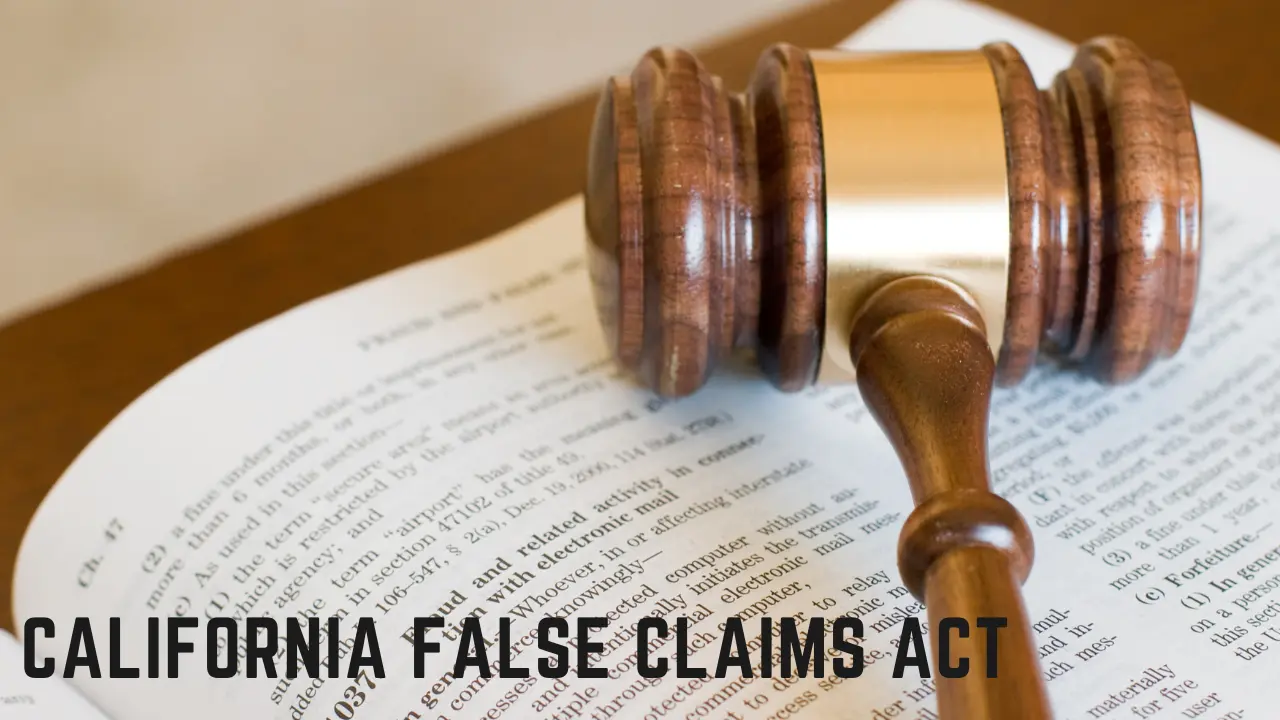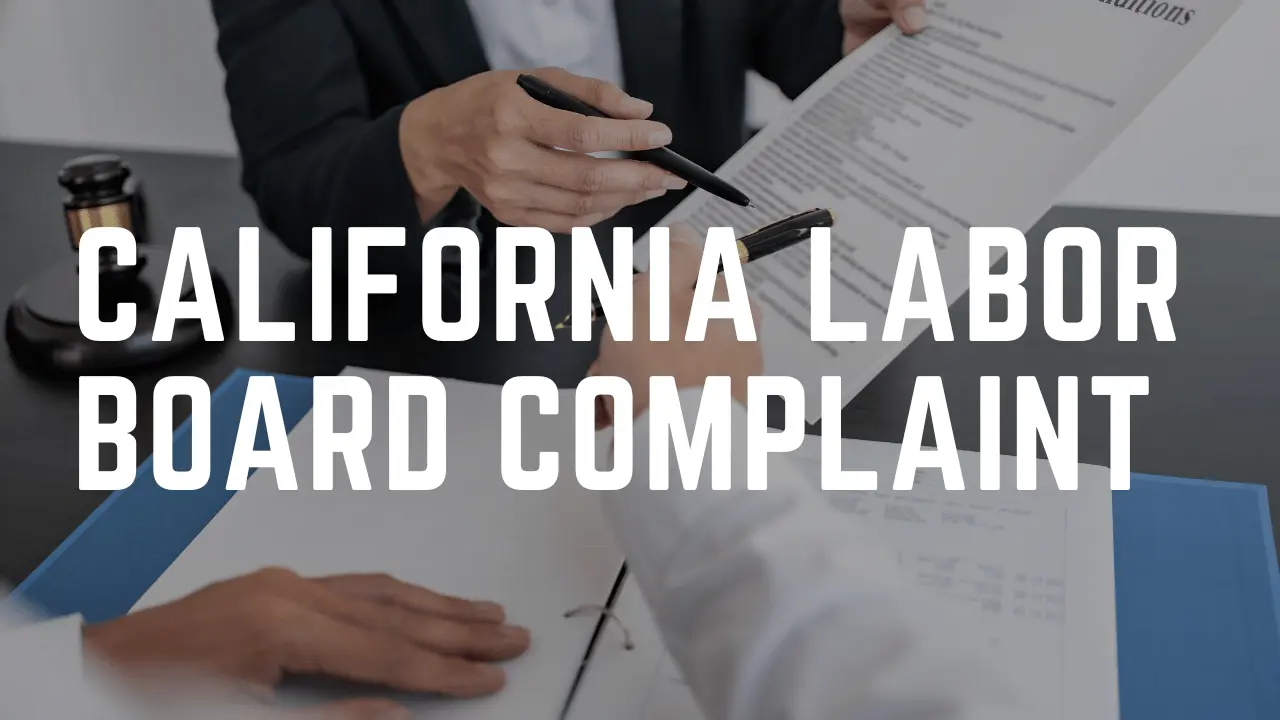You might feel like you’re in the middle of a high-stakes spy thriller, stumbling upon fraudulent activities in your workplace and considering whether to risk it all and blow the whistle. You probably worry about the consequences, the potential backlash, the retaliation.
You’re not alone and there’s a robust legal framework that’s got your back – the California False Claims Act (CFCA). This legislation, with its qui tam provisions and whistleblower retaliation safeguards, could be your shield and your sword.
Now, wouldn’t you want to know more about the power and protection this law can offer you?
Understanding the California False Claims Act
To grasp the intricacies of the California False Claims Act (CFCA), it’s crucial to understand that it’s a law that imposes civil penalties for activities such as theft, fraud, and embezzlement of government funds. If you’re involved in a claim that includes a request for money, property, or services from the state or local government, you must tread carefully.
Activities prohibited under the CFCA include presenting false claims, making false records, or conspiring to commit fraud. You shouldn’t assume that ignorance or reckless disregard will save you from penalties; the law demands that you act responsibly. Even without a specific intent to defraud, knowingly presenting false claims or records violates the law. Conspiring to commit such actions is equally illegal.
The Role of Qui Tam Lawsuits
When you uncover fraudulent activities against the government as a private citizen, you can take advantage of qui tam lawsuits under the California False Claims Act. These lawsuits allow you to fight back against fraudulent misconduct, holding perpetrators accountable while protecting government resources.
Here’s how qui tam lawsuits work:
- You step into the shoes of the government, acting as a plaintiff to prosecute the fraud.
- You’re protected from retaliation under the whistleblower protection provisions.
- If successful, you’re entitled to a substantial portion of the recovered funds.
- A lawyer experienced in qui tam lawsuits can guide you through the complex legal process.
- It’s essential to act promptly due to the six-year statute of limitations.
Filing Qui Tam Cases as Employees
Ever wondered how you, as a California employee, can play a pivotal role in exposing fraudulent activities through filing qui tam cases under the California False Claims Act (CFCA)? You can become a whistleblower and take legal action on behalf of the government against an employer who’s committing fraud.
It’s not just an ethical move, but you may also receive a portion of the recovered damages as a reward. But be aware, there’s a time limit. You’ve got six years from the violation date to file.
Protection from retaliation is provided under CFCA, so your employer can’t legally fire, demote, or discriminate against you for blowing the whistle. It’s a step towards a more transparent, accountable business environment.
Retaliation Lawsuits Under CFCA
While you’re playing your part in uncovering fraud by filing qui tam cases, it’s crucial to understand the recourse available should you face retaliation under the California False Claims Act (CFCA).
- If you’re experiencing retaliation, you can file a wrongful termination lawsuit.
- There’s a three-year statute of limitations for these suits, counted from the date of termination or retaliation.
- A successful lawsuit may award you with reinstatement, back pay, special damages, and litigation costs.
- Under CFCA, employers can’t discharge, demote, or discriminate against whistleblowers.
- Protection laws are detailed in Government Code 12653 GC.
Knowing these details, you’re better equipped to protect your rights while courageously exposing fraudulent activities.
Protections for Whistleblowers
In the face of potential retaliation, it’s essential to understand that the California False Claims Act (CFCA) offers robust protections for whistleblowers. Under CFCA, you’re shielded from discharge, demotion, or discrimination for reporting violations. If you’ve suffered retaliation, you can file a wrongful termination lawsuit. You have three years from the point of retaliation to take legal action.
The damages in successful cases may include reinstatement, back pay, special damages, and attorneys’ fees. Remember, these protections exist to encourage you to expose fraud and protect government resources. Therefore, don’t let fear of retaliation stop you from taking a stand.
Always consult an experienced lawyer to help navigate these complex legal waters. Your role in upholding integrity within government operations is vital.
Procedures for Whistleblower Retaliation
Now that you’re familiar with the protections offered to whistleblowers, let’s examine the specific procedures that outline how to handle retaliation under the California False Claims Act.
When you face retaliation for whistleblowing, you should:
- Document the retaliation: Record the details of any adverse actions taken against you.
- Report to a supervisor: If possible, report the retaliation to a higher authority within your organization.
- Consult an attorney: Seek legal advice to understand your rights and plan your next steps.
- File a complaint with the Labor Commissioner’s Office: This is a crucial step in the official process.
- Pursue a lawsuit if necessary: If your employer doesn’t rectify the situation, you may need to file a lawsuit for damages.
These steps don’t guarantee a positive outcome, but they’re crucial in protecting your rights.
CFCA Versus Federal False Claims Act
Often, you might find yourself comparing the California False Claims Act (CFCA) to its federal counterpart, the Federal False Claims Act (FFCA), to understand their differences and similarities.
While both laws target fraudulent claims against the government, they’re not identical. The CFCA applies only to false claims involving state or local government funds, while the FFCA covers fraud affecting federal funds.
Also, under the CFCA, you, as an employee, can’t file a qui tam suit if you discovered the fraud through your job duties. This isn’t the case with the FFCA.
Both laws, however, offer protection from employer retaliation. It’s crucial to grasp these nuances to navigate the right path if you’re thinking of blowing the whistle.
Legal Recourse for Retaliated Employees
Facing retaliation for whistleblowing under the CFCA, you have several legal avenues to seek justice and compensation. California law firmly protects your rights as a whistleblower and offers multiple paths to redress.
- You can file a whistleblower retaliation lawsuit. The CFCA allows you to sue your employer for damages if you’ve faced retaliation.
- You can seek reinstatement to your previous position if you’ve been wrongfully terminated.
- You’re entitled to back pay and interest, compensating for lost wages due to retaliation.
- You may also receive special damages, covering emotional distress and other non-economic harm.
- Finally, you can recover attorney’s fees and costs related to the legal process.
Impact of CFCA on Government Fraud
The implementation of the California False Claims Act (CFCA) has had a significant impact on curtailing government fraud, holding violators accountable, and safeguarding public funds.
By providing a platform for whistleblowers to report fraudulent activities, it has led to the recovery of staggering amounts of misappropriated funds. It’s a powerful deterrent too, making potential violators think twice, thereby reducing instances of fraud.
However, it’s not just about money; it’s about promoting a culture of honesty and transparency within government institutions. It encourages employees to speak out against unethical behavior, knowing they’re legally protected from retaliation.
Therefore, while CFCA primarily targets financial fraud, its influence extends to improving overall governance and fostering ethical conduct.
Ensuring Compliance With CFCA
While the CFCA serves as a tool to combat fraud and promote ethical conduct, it’s equally important to understand how to ensure full compliance with its regulations. You’re encouraged to take proactive steps:
- Implement a comprehensive compliance program that aligns with CFCA requirements
- Regularly train your staff on CFCA regulations, focusing on identifying and preventing fraudulent activities
- Foster an open communication environment where employees feel safe to report potential violations
- Establish clear policies and procedures for reporting and investigating suspected fraudulent activities
- Engage legal counsel to stay updated on CFCA amendments and ensure your compliance efforts are effective
Conclusion
So, you’ve navigated the complexities of the CFCA, understood the power of qui tam lawsuits, and learned about protections against retaliation. You’re now well-equipped to tackle workplace fraud and uphold integrity.
Remember, your courage can recover misused funds and deter future fraud. Yet, if retaliation strikes, you’ve got legal recourse.
In essence, the CFCA is your shield and sword in this battle against government fraud. Stand tall, whistleblower, California law has got your back.








